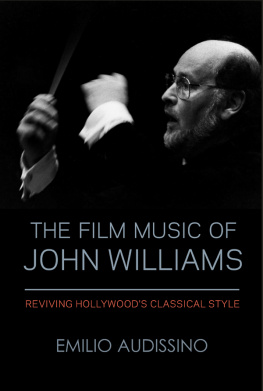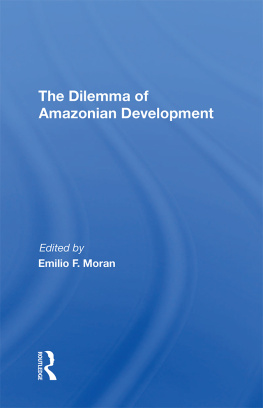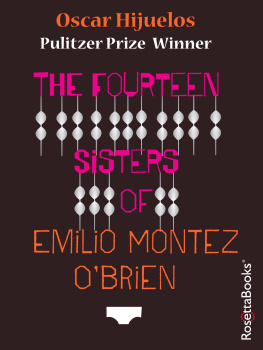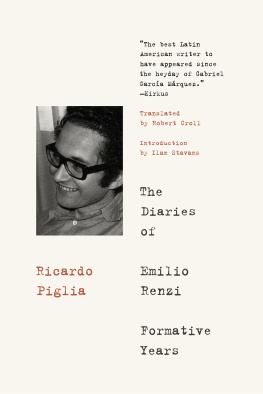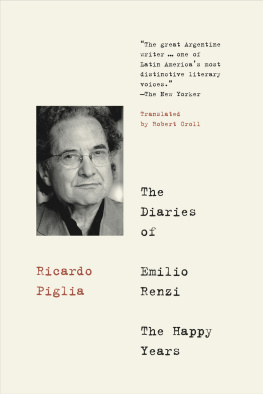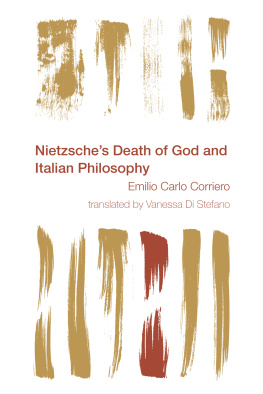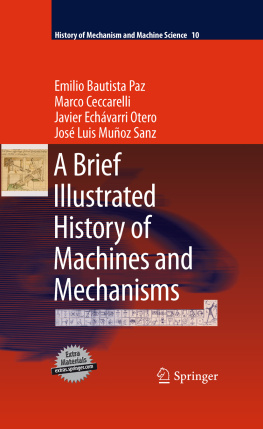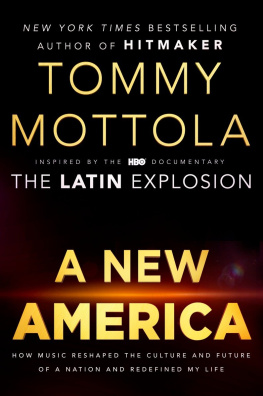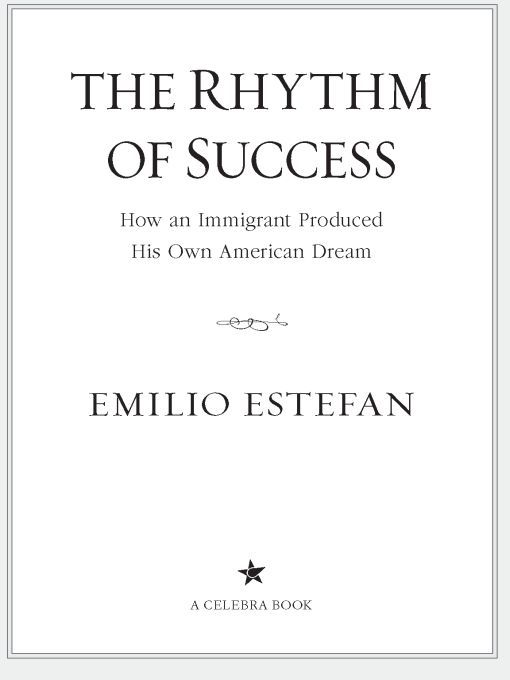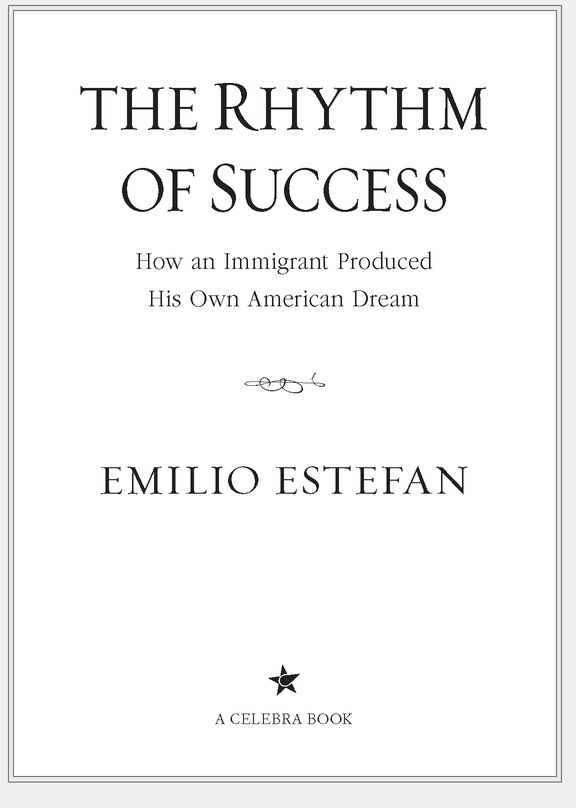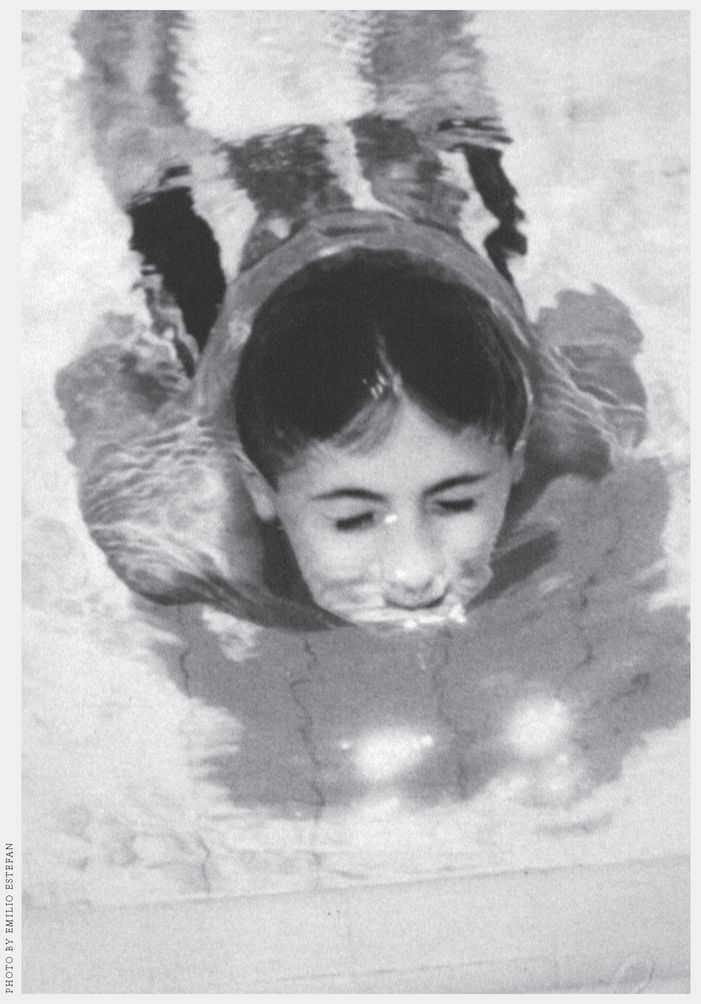Table of Contents
To any young kid with the dream of becoming
the first Hispanic President of the United States
ACKNOWLEDGMENTS
The following people have played an important part in my life and I want to thank them for their love and support:
Carmen and Emilio Estefanfor without them, this story would not be possible.
Gloria, Nayib and Emily Estefan
Jose Papo, Patricia, and Jennifer Estefan
Gloria Fajardo
Lili, Lorenzo, Lorenzito, Lina (Angelina) Luaces
Juan Michy Estefan
Rebecca Fajardo
Frank Amadeo
Ricardo Dopico
Cathleen Farrell
Quincy Jones
Phil Ramone
Tommy Mottola
Jose Maldonado
Raymond Garcia
The entire staff at Estefan Enterprises, Inc.
The staff at Crescent Moon Studios
FOREWORD
Emilio Estefan is the Ambassador of Latin music in the U.S. He has a sense of pride and heritage so deep that it emanates through everything he touches. All of his greatest accomplishments were made possible because of one reasonhe does what he loves.
I can relate to Emilio in so many ways. When I was growing up, there were no black idols doing what I would ultimately do. I had to make my own dream. Man, when I was a kid, all I wanted to be was a gangster. I got into all types of serious trouble, but I distinctly recall the day my life changed. I was eleven years old when I broke into a local recreation center and snuck into an administration room, where in a dark corner I saw a piano. I almost walked out and closed the door shut. But thank God a voice came to me and said, Idiot, get back in that room. I opened that door, sat at the piano, slowly put my fingers over the keys and started to play. Every bone in my body told me music would be in my life, heart and soul forever. I played instruments in school before then, but I didnt really know how to make music. I just always loved it. But, at that moment, as much as I needed food and water to survive, I knew I would need music to live. I thank God that at eleven years old that piano saved my life.
When Emilio was growing up in the U.S., there were no Latin music moguls for him to emulate. He had to make his own dream, too. Emilio found his love for music at an early age with his accordion. He knew music ran deep in his veins and it would be with him as long as he lived. Like me, when he was eleven years old, his life changed. He was forced to leave Cuba with the responsibility of bringing his family to America. While Castro stripped him of his life as he knew it, he couldnt take away his passion for his culture, his determination to succeed and his love for music. Emilio came to America and single-handedly made Latin music a pop-cultural craze with the Miami Sound Machine, opened doors for so many new artists, like Ricky Martin and Shakira, and helped preserve the incredible influence of Cuban music with legends, like Israel Cachao Lopez and Celia Cruz.
I understand Emilio so well because I love Cuban music so much. Its a lot like jazz. It has classic, African, rumba and so many other influences. At the age of nineteen, I was blessed to go to Cuba, while Batista was president, and really grasped the origins of these amazingly technical and soulful sounds. The people, colors, and music of that island will stay with me always. By the time I was twenty-two, I was already mixing with Dizzy Gillespie, and some of the greatest Cuban precisionists of all time, like the ultimate conga showman Carlos Patato Valdez, who was in my band; the masterful Candido Camero; and the pioneering Chano Pozo. In the early 1950s, I was going with Brando to the Palladium every Sunday to see Latin music giants like Chico OFarrill, Tito Puente, Johnny Pacheco, Machito, Mario Bauz and countless other legendary performers. That music burned through the dance floor like wild fire, man. Thats the energy Emilio has within him.
Ive had the honor of arranging and recording with the greatest names in music, like Ella Fitzgerald, Louis Armstrong, Aretha Franklin, Lionel Hampton, Sarah Vaughan, Ray Charles, Count Basie, Duke Ellington, Billie Holiday, and Miles Davis, just to name a few. I spotted a new generation of talent, like the late and incomparable Michael Jackson, Oprah, and Will Smith. Throughout the years, Ive met and worked with so many thousands of amazing people all over the world. And, Im telling you, there is just a feeling you get when you meet someone that is so real. Emilio is as real as it gets. His extraordinary wife and my baby sister, Gloria, his son and my homeboy, Nayib and his daughter and my precious goddaughter, Emily, are all truly my familymy blood. They will always have my eternal love.
Ive lived my entire life by the fundamental principle that not one drop of myself depends on your acceptance of me. Because Emilio and I had to create our own paths, we had to believe in our dreams no matter what anybody said. We overcame every hurdle in order to make our music heard. The music we were playing had nothing to do with money or fame. Believe me, you didnt play bebop or Cuban music to get rich. We only did what we loved. There was a rhythm to our success. We just listened to it and followed it. And, if there is anyone that could possibly inspire you to listen to the rhythm of your own success and follow it, its my brother, Emilio Estefan.
In the following pages, you will learn a lot about an extraordinary man but, more important, about your own extraordinary potential.
Quincy Jones
Emilio Estefan at age six swimming in Cuba.
Introduction
My childhood ended when I was eleven. I know the exact instant that it happened. Standing unseen at a door in our house, I overheard my parents talking about the situation that lay ahead for our country and ultimately our family. If you understand that this episode took place in the mid-1960s and the country we lived in was Cuba, youll know I heard nothing encouraging, nothing that would make me optimistic for the years ahead. My parents spoke with such worry in their voices that it frightened me. Many people close to us had already left Cuba, including children I had gone to school with, and others were quietly making plans. There was so much uncertainty.
Although at first what I heard scared me, I was very quickly filled with an extraordinary sense of purpose. In the course of those few moments I was a little boy no longer. Instantly I became a man.
As my parents talked about Castros revolution and the direction it was taking, I knew what Id have to do. I was going to have to take on a great responsibility and leave my country if my family was going to have any future together. As parents do they worried about their children. By this time my older brother, who was already of military age, was at the university studying engineering and there was no way the government would allow him to leave Cuba. But I was several years away from the age when I might be required for military service, and young enough that I could potentially leave. That day I had no real plan, just the realization that leaving Cuba was my only way to live in a free world. I knew I was my familys only hope.
What does the concept of freedom mean to an eleven-year-old boy? I couldnt have told you anything about constitutional government or life, liberty, and the pursuit of happiness. I just knew that freedom was a place where soldiers didnt come to your home and herd people around with machine gunssomething that had just happened to our family. I knew that freedom was a place where the government couldnt simply take money from you just because they wanted toit was U.S. dollars the soldiers were looking for in our house. At that moment, standing outside my parents room, I probably wouldnt have been able to give freedom a name, but I did know it existed in the United States of America, and I knew that my familys future depended on me to find it.


